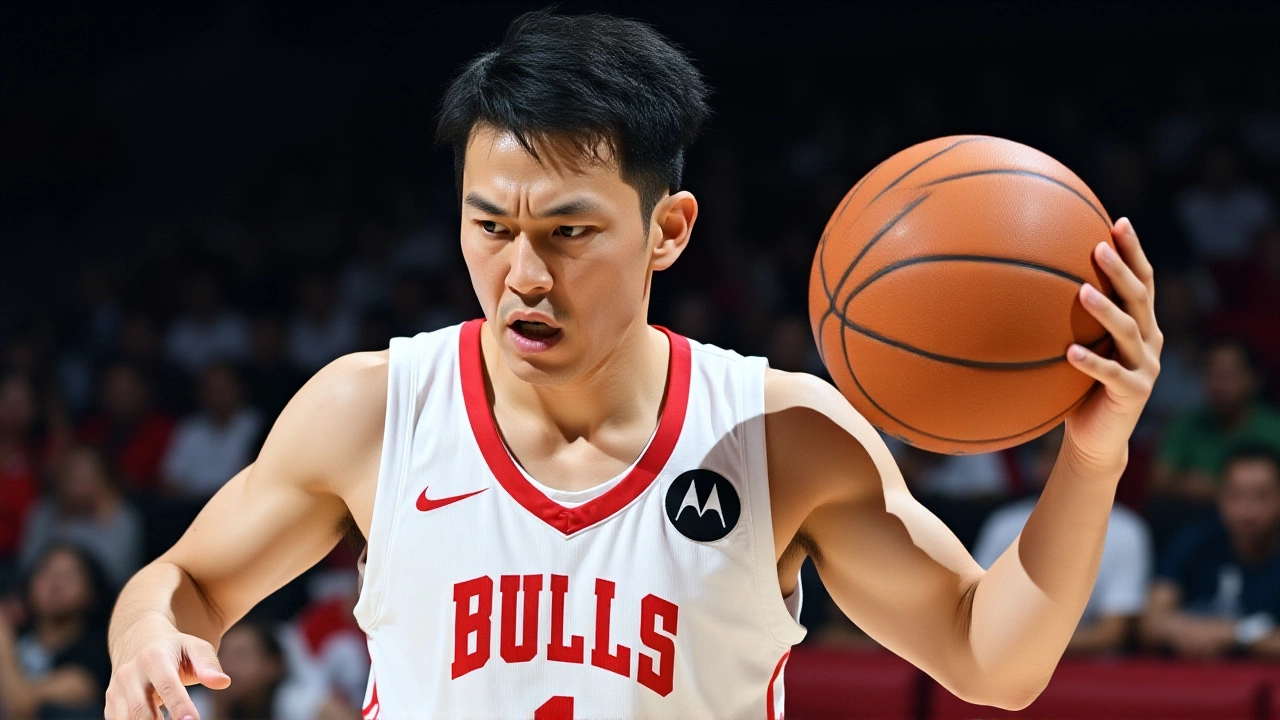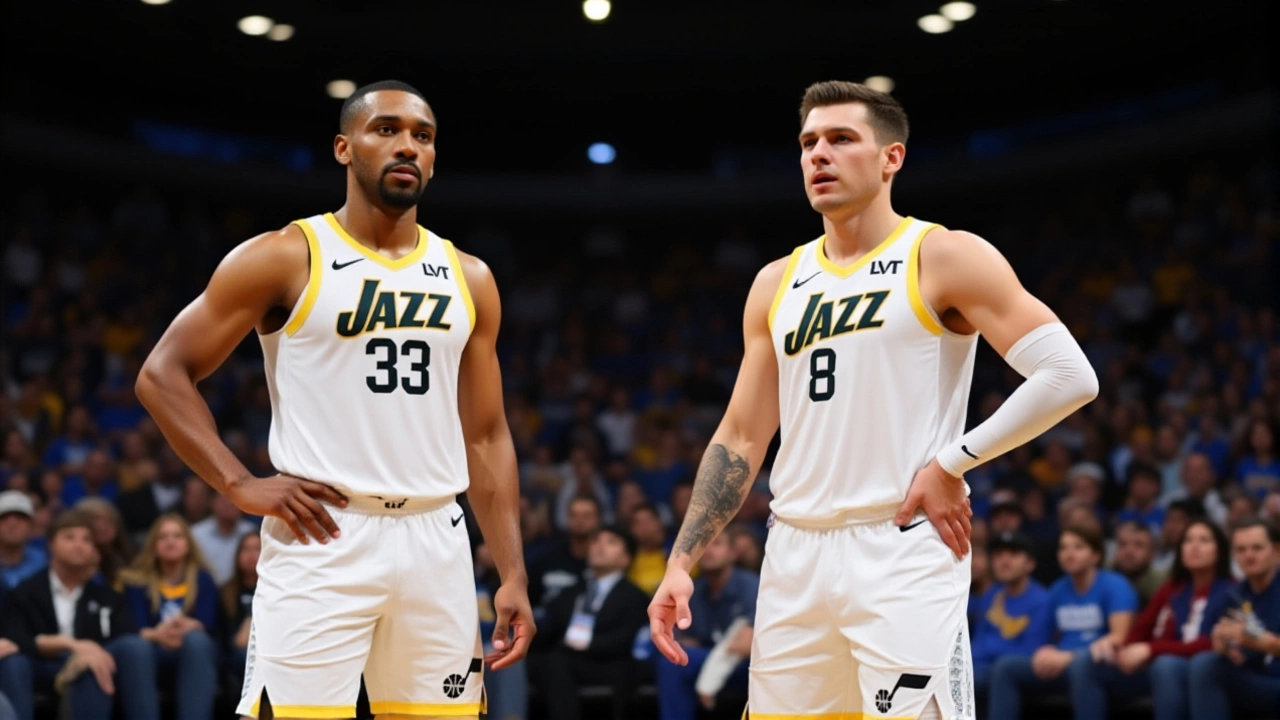Yuki Kawamura’s 20-Point, 10-Assist Masterclass Propels Bulls Past Jazz in Summer League Finale

When Yuki Kawamura drained his sixth three-pointer with 3:12 left in the fourth quarter, the Chicago Bulls bench erupted—not because they’d just sealed a win, but because they’d just witnessed something unexpected: a 24-year-old Japanese guard playing like a veteran playmaker who belonged on an NBA court. The Chicago Bulls defeated the Utah Jazz 105-92 on , at the Thomas & Mack Center in Las Vegas, capping a turbulent Summer League run with their most dominant performance yet. Kawamura, who averaged just 4.2 minutes per game last season with the Memphis Grizzlies, turned 27 minutes into a highlight reel: 20 points, 10 assists, 6 threes, 4 rebounds, and 2 steals. He didn’t just play well—he redefined what’s possible for a player on the fringe of the NBA.
From Benchwarmer to Summer League Star
Last season, Kawamura was an afterthought. In 22 games with the Grizzlies, he rarely saw the floor. He was a roster filler, a developmental project, a name on a depth chart. But here, in the heat of the Las Vegas Summer LeagueLas Vegas, he was the engine. His 6-of-9 shooting from deep wasn’t luck—it was precision. One of his no-look dimes to Javon Freeman-Liberty in the second quarter drew gasps from scouts in the stands. ESPN’s game feed called it “ridiculous.” RotoWire noted he finished the Summer League with a league-leading 6.2 assists per game. And for a guy who barely played in the regular season, that’s not just an upgrade—it’s a revelation.The Numbers Don’t Lie
The box score tells part of the story. Javon Freeman-Liberty led the Bulls with 22 points and 9 rebounds, while Cody Williams of the Jazz dropped 26 points on 5 threes. But the real story was in the rhythm. The Bulls opened the game on a 24-12 run—the kind of start that sets the tone for a team playing with confidence. They led by 15 at halftime, and even though the Jazz outscored them 64-54 in the second half, Chicago’s early lead was too much to overcome. Kawamura’s efficiency was staggering: 54.5% from the field, 66.7% from three, 100% from the line. He didn’t just shoot well—he created space for others. His 10 assists came on 10 different Bulls players scoring, a testament to his court vision.Why This Matters for Chicago’s Roster
The Chicago Bulls aren’t just thinking about next year’s rotation—they’re thinking about two-way contracts. With only two available, and names like Kawamura, Freeman-Liberty, and several other Summer League standouts vying for attention, management is facing a real dilemma. As Pippin Ain’t Easy reported on July 16, Kawamura’s play has “forced the Bulls to consider their two-way contract slots.” That’s not just media hype—it’s front office panic. He’s not just a good shooter. He’s a decision-maker who thrives under pressure. In five Summer League games, he averaged 10.2 points, 6.2 assists, and 2.2 steals while shooting 41.7% from deep. That’s not a fluke. That’s a skill set that translates.
What This Means for International Players
Kawamura’s rise isn’t just a Bulls story—it’s a global one. He’s one of only a handful of Japanese players to make a legitimate NBA Summer League impact. His performance echoes the breakthroughs of players like Rui Hachimura and Yuta Watanabe, but with more playmaking flair. Scouts from Europe and Asia are watching closely. For a country that’s producing more skilled guards than ever, Kawamura’s success could open doors for others. He didn’t come from a college powerhouse. He didn’t get drafted. He earned every minute on this court. And now, he’s forcing a franchise to rethink what a backup point guard can be.What’s Next for Kawamura?
The Chicago Bulls’ training camp begins in late September. If Kawamura gets a two-way deal, he’ll split time between the NBA and the South Dakota Skyforce, Chicago’s G League affiliate. But if he impresses in camp, a regular-season roster spot isn’t out of the question. His Summer League numbers—especially his assist-to-turnover ratio of nearly 3:1—suggest he can handle NBA pace. The Memphis Grizzlies didn’t see this coming. The Chicago Bulls might just have stumbled onto a hidden gem.
Final Thoughts: A Quiet Revolution
This wasn’t a game that made headlines on SportsCenter. No All-Stars played. No trades were announced. But sometimes, the most important moments happen quietly. Kawamura didn’t just play well—he played like someone who belonged. And in a league obsessed with athleticism and hype, his poise, precision, and passing were the real story.Frequently Asked Questions
How did Yuki Kawamura’s Summer League performance compare to his NBA regular season stats?
During the 2024-25 regular season with the Memphis Grizzlies, Kawamura averaged just 4.2 minutes per game across 22 appearances, scoring 1.8 points and 0.9 assists. In contrast, his Summer League numbers were dramatically higher: 10.2 points, 6.2 assists, and 2.2 steals per game over five games, with 41.7% shooting from three. That’s a nearly six-fold increase in playing time and a complete transformation in role and impact.
Why is a two-way contract so important for Kawamura’s future?
A two-way contract allows Kawamura to split time between the NBA and the G League, giving him exposure to NBA-level play without using a full roster spot. For the Bulls, it’s a low-risk, high-reward option: if he develops, he can be converted to a standard contract. If not, he can be released with minimal financial impact. His Summer League performance makes him a top candidate for one of Chicago’s two available two-way slots.
Who else stood out for the Chicago Bulls in the Summer League?
Guard Javon Freeman-Liberty was the team’s leading scorer in the finale with 22 points and 9 rebounds, and he averaged 14.8 points and 5.6 assists over five games. Forward Cody Williams led the Jazz with 26 points in the final game, but for the Bulls, it was Kawamura’s playmaking that elevated the entire offense. Freeman-Liberty’s scoring and Kawamura’s vision created a dynamic backcourt duo that looked far more polished than expected.
What does Kawamura’s performance mean for Japanese basketball?
Kawamura’s success adds to a growing list of Japanese players making NBA impacts, including Rui Hachimura and Yuta Watanabe. His ability to thrive as a pure point guard—especially with elite shooting and court vision—challenges the stereotype that Asian players lack NBA-level athleticism. He’s proving that skill, IQ, and timing can overcome physical limitations, potentially inspiring a new generation of guards in Japan’s professional league.
How did the Bulls’ Summer League record compare to other teams?
The Bulls finished 3-2 in the 2025 Las Vegas Summer League, placing them among the top half of the 24-team field alongside Portland, Philadelphia, and Golden State—all of whom also had .600 winning percentages. The Jazz, by contrast, finished 1-4, tied for second-worst in the league. The Bulls’ strong finish, led by Kawamura, was one of the most impressive turnarounds of the tournament.
What’s the likelihood Kawamura makes the Bulls’ opening-night roster?
Making the opening-night roster is unlikely without a major injury or trade, but a two-way contract is very probable. The Bulls already have Zach LaVine, DeMar DeRozan, and Ayo Dosunmu at guard. However, if Kawamura impresses in training camp and preseason, he could push for a spot as the third point guard. His shooting and playmaking make him a valuable backup, and his low salary cap hit makes him an easy candidate for a two-way deal.